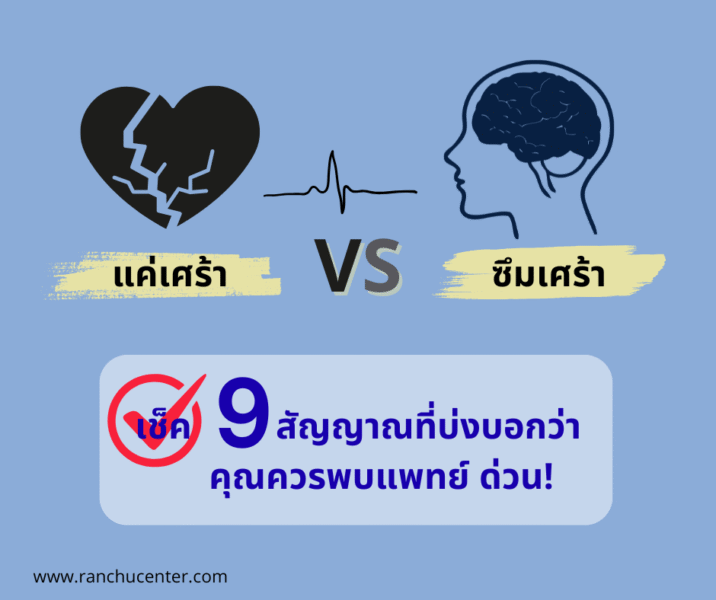Coping with Depression: Understanding, Strategies, and Resources for Recovery
เวลาอ่านโดยประมาณ: 8 นาที
Key Takeaways
- Depression is a common mental health disorder affecting millions worldwide.
- Understanding depression is key to finding effective coping strategies.
- Open communication and seeking professional help are essential in managing depression.
- Lifestyle changes such as regular exercise and balanced diet can improve mental health.
- Various resources, including hotlines and online platforms, are available for depression help.
Table of contents
- Understanding Depression
- Common Signs of Depression
- Coping with Depression
- Open Communication
- Seeking Professional Help
- Lifestyle Changes
- Establishing a Routine
- Mindfulness and Relaxation Techniques
- Dealing with Depression
- Identify Triggers
- Journal Your Feelings
- Self-Compassion and Kindness
- Depression Help Resources
- Hotlines
- Online Resources
- Local Support Groups
- Therapy or Counseling
- Medical Professionals
- Overcoming Depression
- Success Stories
- Maintaining Healthy Habits
- Conclusion
Coping with depression can feel overwhelming, but understanding its nature and finding effective strategies can help immensely. Depression is a mental health disorder characterized by persistent feelings of sadness, hopelessness, and a lack of interest or pleasure in daily activities. According to the National Institute of Mental Health (NIMH), depression affects millions of people worldwide. In fact, the World Health Organization reports that over 264 million people of all ages suffer from depression globally. This blog aims to provide insights and practical help for coping with depression and overcoming its impacts. By understanding depression and learning effective coping mechanisms, you can navigate this challenging journey toward mental wellness.
Source:National Institute of Mental Health, World Health Organization
Understanding Depression
Depression isn’t just a temporary feeling of sadness—it is a serious and long-lasting mental health condition. While sadness is a normal emotion that everyone experiences at times, depression persists longer and can be more intense. It often requires treatment and professional help. According to the Mayo Clinic, symptoms of depression can include feelings of sadness that last for weeks or months, leading to various difficulties in daily life.
Source:Mayo Clinic
Common Signs of Depression
Recognizing the signs of depression is crucial in understanding whether you or someone you know may need help. Here are some key signs to be aware of:
– Persistent sadness or low mood: This feeling may not go away and can interfere with daily activities.
– Changes in sleep patterns: This can involve insomnia, where you struggle to sleep, or oversleeping far beyond usual.
– Changes in appetite: Some may experience overeating to cope or a loss of appetite entirely.
– Loss of interest or pleasure in previously enjoyed activities: Hobbies that once brought joy may no longer have the same appeal.
– Difficulty concentrating or making decisions: Simple tasks may feel overwhelming, impacting overall productivity.
– Feelings of worthlessness or excessive guilt: Individuals might feel they aren’t good enough, which can exacerbate the condition.
– Thoughts of self-harm or suicide: If you or someone you know exhibits these thoughts, it’s essential to seek help immediately.
If you or someone you know is having thoughts of self-harm or suicide, please reach out. Contact the National Suicide Prevention Lifeline at 1-800-273-TALK (8255) for immediate support.
Source:National Suicide Prevention Lifeline
Coping with Depression
While coping with depression can be challenging, there are practical strategies you can implement into your daily life to help manage symptoms. These strategies are designed to help build a strong foundation for better mental health.
Open Communication
Open communication with loved ones provides much-needed emotional support. Talking about your feelings or struggles can lighten the load and lead to helpful insights or solutions. Ensuring your close friends and family understand what you’re going through can create an atmosphere of support and understanding.
Seeking Professional Help
Utilizing depression help is an essential strategy. Seeking professional guidance through therapy, like cognitive-behavioral therapy (CBT), can provide tools for coping effectively. A mental health professional helps identify negative thought patterns and replace them with healthier ones.
Lifestyle Changes
Making healthy lifestyle choices profoundly impacts your ability to cope with depression. Here are some key changes to consider:
– Regular Exercise: Physical activity boosts serotonin levels, improving mood. Aim for at least 30 minutes of exercise most days.
– Balanced Diet: Eating a diet rich in nutrients supports mental health. Consider foods high in omega-3 fatty acids, antioxidants, and whole grains.
– Sleep Hygiene: Maintain a consistent sleep schedule, aiming for 7–9 hours per night. Establishing a bedtime routine, like limiting screen time, can help improve sleep quality.
Establishing a Routine
Establishing a daily routine can create a sense of normalcy and control during chaotic periods. Regular activities can structure your day and motivate you to engage fully with life.
Mindfulness and Relaxation Techniques
Mindfulness practices can help reduce stress and enhance overall well-being. Techniques to explore include:
– Meditation: Regularly practicing meditation can help calm the mind and focus on the present.
– Yoga: Incorporating yoga into your routine can improve flexibility while promoting relaxation.
– Deep Breathing Exercises: Taking a few deep breaths when feeling overwhelmed can provide immediate relief.
Dealing with Depression
Learning how to deal with depression in everyday life is vital. Incorporating specific tips for managing symptoms can lead to improved mental health.
Identify Triggers
Recognizing triggers that lead to depressive symptoms is essential. Keep track of what situations make you feel worse, and try to use coping strategies to redirect those thoughts. You could create a list of activities that make you feel good and turn to those when feeling down.
Journal Your Feelings
Keeping a journal allows you to express your thoughts and emotions freely. Documenting your feelings and daily experiences can provide clarity and even inspire constructive change. Writing can become a therapeutic outlet, alleviating the intensity of your feelings.
Self-Compassion and Kindness
Practicing self-compassion and kindness toward yourself is crucial in dealing with depression. It’s essential to acknowledge that mental health struggles are not a reflection of your worth. Taking time to care for yourself allows for recovery, fostering resilience during tough periods.
Depression Help Resources
Finding help is vital, and several resources can support your mental health journey.
Hotlines
If you need immediate assistance, contact a hotline like the National Suicide Prevention Lifeline at 1-800-273-TALK (8255). Trained professionals are available to listen and provide support.
Source:National Suicide Prevention Lifeline
Online Resources
Consider visiting websites dedicated to mental health, such as:
– NAMI
These organizations provide resources that can guide you toward recovery.
Source:NAMI, Mental Health America
Local Support Groups
Look for local support groups where individuals facing similar experiences can find community and friendship. Connecting with others who understand your struggles can ease feelings of isolation.
Therapy or Counseling
Engaging in therapy or counseling is an impactful way to cope with depression. Many methods, especially cognitive-behavioral therapy (CBT), focus on changing thought patterns associated with depression (Source: APA). Don’t hesitate to reach out to a therapist to explore the best options.
Source:APA
Medical Professionals
If necessary, don’t shy away from involving medical professionals for medication or specialized treatment. Medication can effectively manage symptoms, and a healthcare provider can guide you in making informed decisions.
Overcoming Depression
The journey of overcoming depression is a personal process, often filled with ups and downs. Remember, recovery takes time, and there may be relapses along the way, but it is achievable.
Success Stories
Inspiring testimonials from individuals who have intertwined coping mechanisms into their lives illuminate the path to recovery. These stories can encourage hope, demonstrating that a brighter future is possible with effort and support.
Maintaining Healthy Habits
To ensure long-term success, it is essential always to cultivate healthy habits and maintain a support network. Consistently practicing the strategies you’ve learned helps solidify a positive outlook.
Conclusion
Understanding and seeking help for depression is vital for personal growth. Knowledge can de-stigmatize the conversation surrounding mental health, fostering better awareness and understanding.
Coping with depression is possible through the various strategies outlined here. Whether you choose to communicate your feelings, seek professional support, or engage in self-care, remember that you are not alone.
































